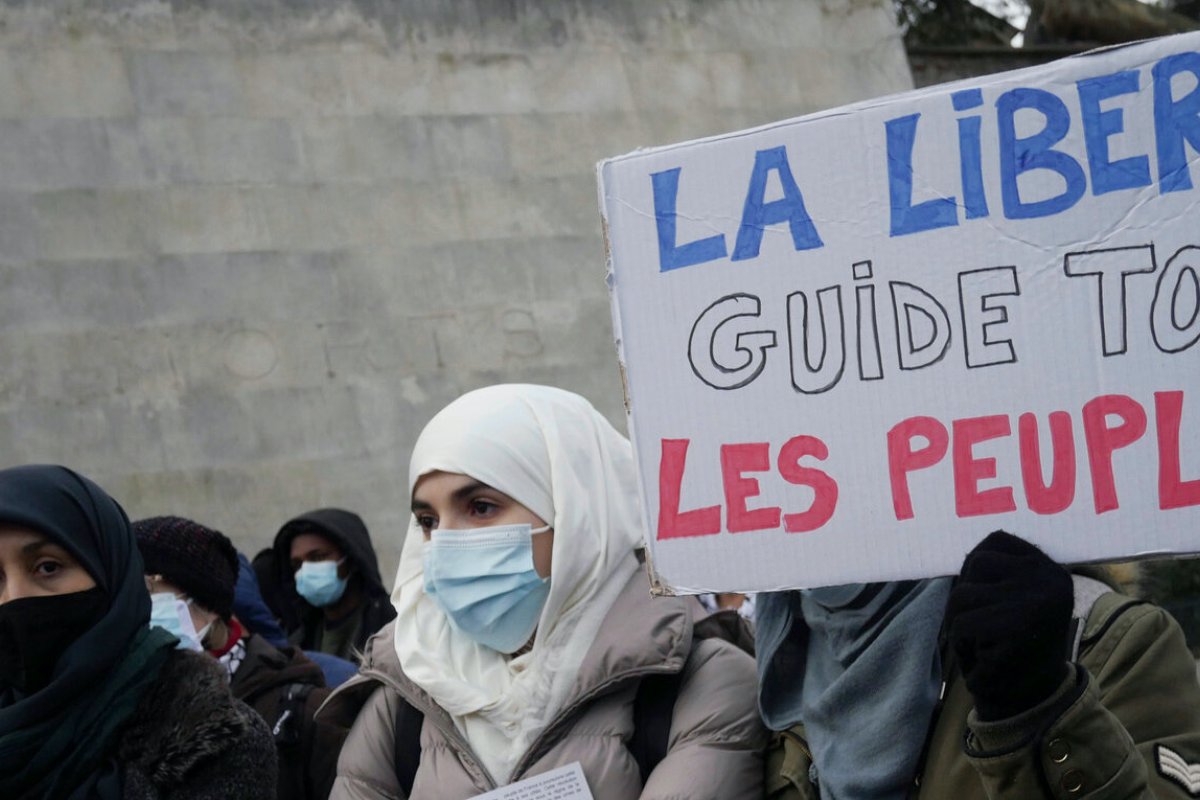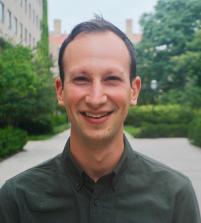
The Problem with Freedom from Religion
Laïcité must reckon with the continuing impact of French colonial history
France is undergoing the latest instantiation in a long stream of crises surrounding its relation to Islam, secularism, and those it deems “foreign” to the republic. This time, the events were precipitated by the murder of Samuel Paty, a schoolteacher who was killed in October 2020 after showing his students the now infamous Charlie Hebdo cartoons depicting the prophet Muhammad. The French government and intellectual establishment erupted in arms around Paty’s death and latched on to familiar arguments surrounding freedom of speech and laïcité (French secularism). Gérald Darmanin, the Minister of the Interior, quickly evoked the specter of Islam threatening the Republic and called for the dissolution of prominent NGOs, including the Collective Against Islamophobia in France, which he accused of spreading “Islamist propaganda.” President Emmanuel Macron and his education minister, Jean-Michel Blanquer, began a public campaign against the rise of “Islamo-leftism” and “foreign theories,” which are purportedly being imported from America.
That this accusation of Islamo-leftism recalls similar fear-mongering tactics around the racist slur Judeo-Bolshivism, seems to go unnoticed; as does, for that matter, the direct echoes of a similar attack by white supremacists against critical race theory on the other side of the Atlantic. As a result of all this, on February 16, France’s National Assembly signed a bill that would authorize government crackdown on religious organizations whose ideas are deemed to “provoke hate or violence.” The bill will require associations to commit to uphold “republican values”—effectively enshrining an Islamophobic state regulation of laïcité into law.
Lest one think that this is the isolated work of a few powerful outliers, shortly after Blanquer’s statements, one hundred prominent professors and researchers from across the French academy published a manifesto in Le Monde completely aligning themselves with Blanquer’s attacks on “Islamo-leftism.” Citing, among other things, women wearing veils and the supposed importation of indigenous, decolonial, and critical race theories, the manifesto calls on the Minister of Higher Education, Research, and Innovation to take a stand against these ideologies and to “include our universities in the fight for secularism and the Republic.” The manifesto ironically calls for the regulation of religion as a matter of freedom of expression. In the French iteration of secularism, it is freedom from religion that truly counts rather than freedom of religion.
Although it masquerades under the guise of secularism and “republican values,” France’s relationship to ‘Islam’ has deep racist and colonial histories. The racialized French state was conceived in the history of empire—and questions of immigration, racism, Islam, and cultural difference all have deep colonial histories. Indeed, as some scholars argue, France might be best described as “the colonial republic,” a complex interweaving of democracy and colonialism. After the Algerian War of Independence ended in 1962, many people from former colonies and protectorates across North Africa immigrated to France, not only reconfiguring the demographic, economic, and cultural topography of the hexagon, but also challenging and remaking the norms of French secularism. However, issues of colonial governance, policy, and control did not merely cease to exist, and were instead transposed onto new forms of management and exploitation. One prominent group goes so far as to refer to itself as the indigenous of the republic—a phrase that highlights the continuity between the defunct French Code de l'indigénat, which relegated natives to inferior status in the colonies, and life in France today. (Houria Bouteldja, a prominent writer and activist associated with the group, is a steady target of right-wing attacks and features heavily on the website of the manifesto.)
France is characterized by a doubled history, at once the site of the Declaration of the Rights of Man and Citizen and a supposed bastion of liberal democracy, and simultaneously, torn by histories of violence and exploitation. Democracy and empire are born together, or, as the acclaimed philosopher Achille Mbembe described it, one must contend with “the republic and its beast.”. Yet, for the most part, France has failed to even acknowledge, much less sort out this history. We might recall that race is itself not a political category which France counts in its census data or collects any information about, opting instead to see itself as blissfully colorblind. Commissioned by President Macron, a recent report on French colonial history by the prominent historian Benjamin Stora recommends against issuing an official apology—a move itself reminiscent of the half century it took for France to take responsibility for deporting Jews during WWII.
The failure to adequately reckon with this history is on full display in the present. The perceived threat of Islam and Muslims is intimately entangled in this colonial history too. For instance, the historian Joan Scott writes that: “The stereotypes of colonialism were revived in debates about ‘immigrants,’ but the language of conquest was reversed. Now the question was whether the former colonial subjects would over-run the French homeland, whether, in particular, ‘Islam’ would colonize ‘France.’” She was describing the 1970s, but she could just as well be talking about today.
In response to the manifesto, another group of academics—including Gayatri Chakravorty Spivak, Laleh Khalili, David Theo Goldberg, Rashid Khalidi, Talal Asad, Joan Scott, and Ann L. Stoler—wrote a scathing response criticizing the “whitewashing of the history of race and colonialism” and the deeply entrenched Islamophobic worldview that undergirds it. When French lawmakers use the notion of the secular to pass Islamophobic laws, they regulate the category of religion and determine who and what can appear in the public sphere. Moreover, they willfully ignore the histories of race and colonialism which have structured France’s relationship to Islam for centuries.
Photo: Protestors in Paris last month marching against a proposed law which is aimed at Islamist extremism, but which critics say could impede religious freedom. (Thibault Camus | AP)
Sightings is edited by Daniel Owings, a PhD Candidate in Theology at the Divinity School. Sign up here to receive Sightings via email. You can also follow us on Facebook and Twitter. The views and opinions expressed in this article are those of the author and do not necessarily reflect the position of the Marty Center or its editor.


